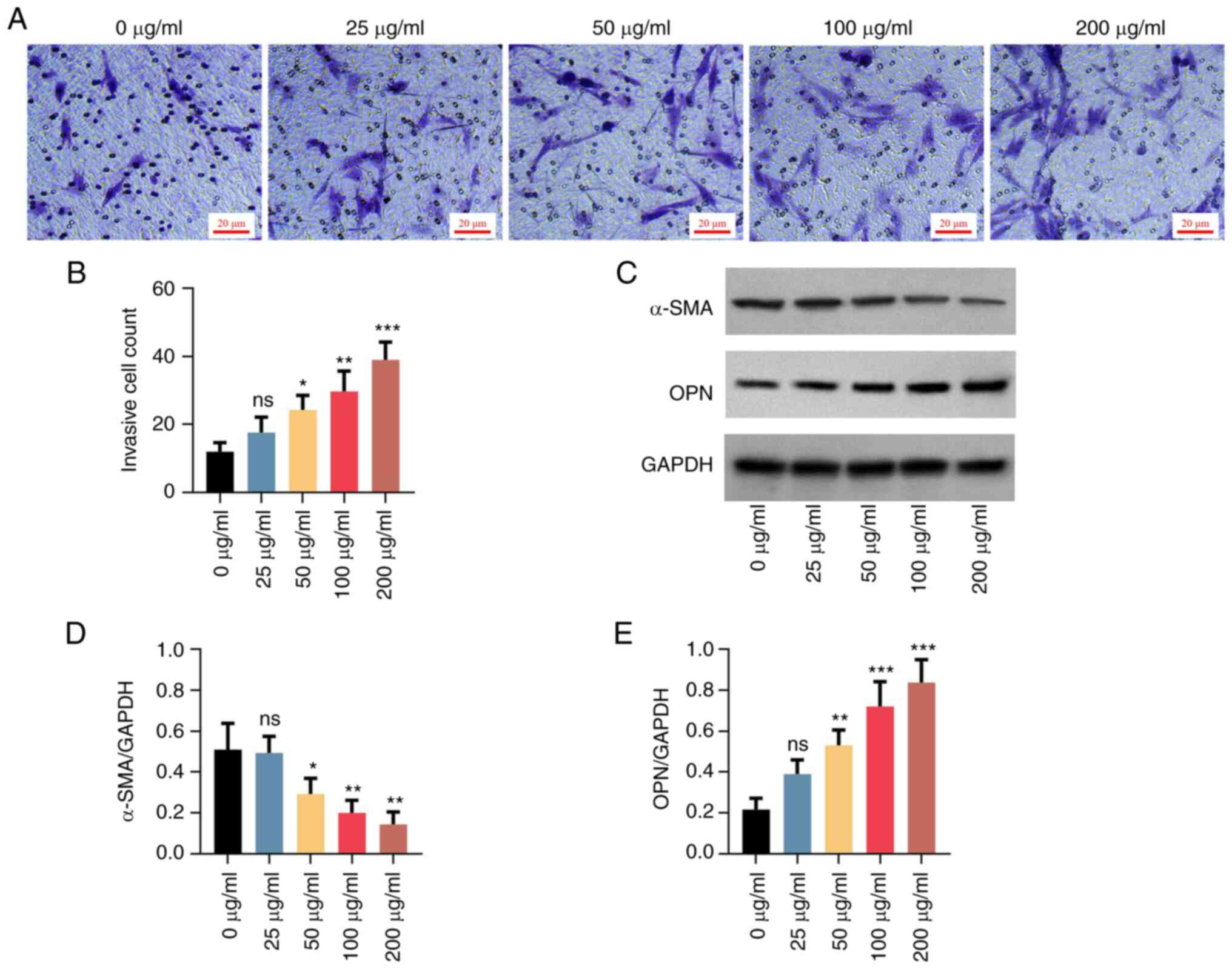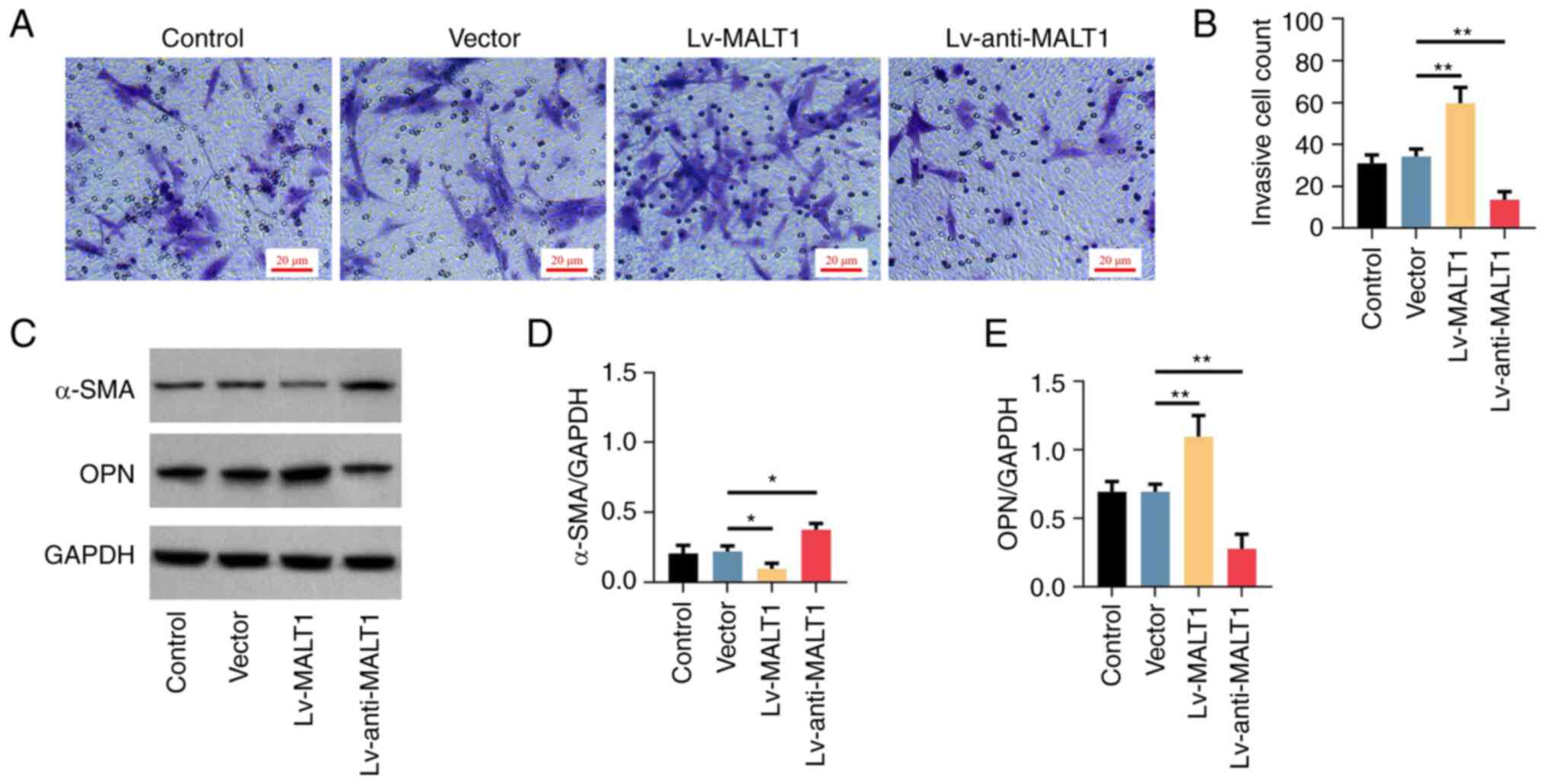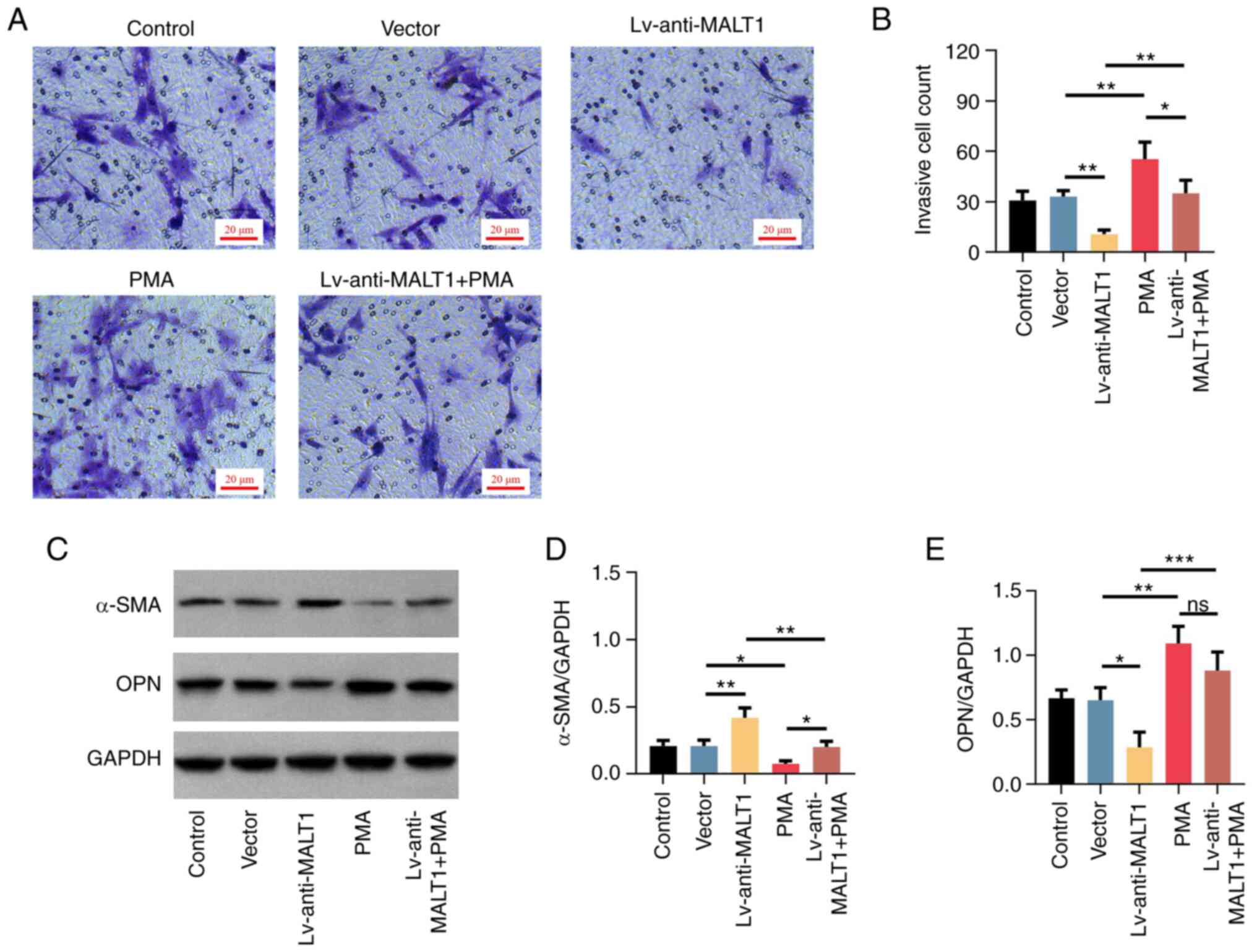|
1
|
Bjorkegren JLM and Lusis AJ:
Atherosclerosis: Recent developments. Cell. 185:1630–1645.
2022.PubMed/NCBI View Article : Google Scholar
|
|
2
|
Dawson LP, Lum M, Nerleker N, Nicholls SJ
and Layland J: Coronary atherosclerotic plaque regression: JACC
State-of-the-Art review. J Am Coll Cardiol. 79:66–82.
2022.PubMed/NCBI View Article : Google Scholar
|
|
3
|
Mendelson SJ and Prabhakaran S: Diagnosis
and management of transient ischemic attack and acute ischemic
stroke: A review. JAMA. 325:1088–1098. 2021.PubMed/NCBI View Article : Google Scholar
|
|
4
|
Seiffge DJ, Wilson D and Wu TY:
Administering thrombolysis for acute ischemic stroke in patients
taking direct oral anticoagulants: To treat or how to treat. JAMA
Neurol. 78:515–516. 2021.PubMed/NCBI View Article : Google Scholar
|
|
5
|
Xiong Y, Wakhloo AK and Fisher M: Advances
in acute ischemic stroke therapy. Circ Res. 130:1230–1251.
2022.PubMed/NCBI View Article : Google Scholar
|
|
6
|
Bhatt DL, Lopes RD and Harrington RA:
Diagnosis and treatment of acute coronary syndromes: A review.
JAMA. 327:662–675. 2022.PubMed/NCBI View Article : Google Scholar
|
|
7
|
Gaudino M and Taggart DP: Percutaneous
coronary intervention vs coronary artery bypass grafting: A
surgical perspective. JAMA Cardiol. 4:505–506. 2019.PubMed/NCBI View Article : Google Scholar
|
|
8
|
Miano JM, Fisher EA and Majesky MW: Fate
and state of vascular smooth muscle cells in atherosclerosis.
Circulation. 143:2110–2116. 2021.PubMed/NCBI View Article : Google Scholar
|
|
9
|
Liu YX, Yuan PZ, Wu JH and Hu B: Lipid
accumulation and novel insight into vascular smooth muscle cells in
atherosclerosis. J Mol Med (Berl). 99:1511–1526. 2021.PubMed/NCBI View Article : Google Scholar
|
|
10
|
Zhang F, Guo X, Xia Y and Mao L: An update
on the phenotypic switching of vascular smooth muscle cells in the
pathogenesis of atherosclerosis. Cell Mol Life Sci.
79(6)2021.PubMed/NCBI View Article : Google Scholar
|
|
11
|
Bennett MR, Sinha S and Owens GK: Vascular
smooth muscle cells in atherosclerosis. Circ Res. 118:692–702.
2016.PubMed/NCBI View Article : Google Scholar
|
|
12
|
DeVore SB and Khurana Hershey GK: The role
of the CBM complex in allergic inflammation and disease. J Allergy
Clin Immunol. 150:1011–1030. 2022.PubMed/NCBI View Article : Google Scholar
|
|
13
|
Qi T, Luo Y, Cui W, Zhou Y, Ma X, Wang D,
Tian X and Wang Q: Crosstalk between the CBM complex/NF-kappaB and
MAPK/P27 signaling pathways of regulatory T cells contributes to
the tumor microenvironment. Front Cell Dev Biol.
10(911811)2022.PubMed/NCBI View Article : Google Scholar
|
|
14
|
McAllister-Lucas LM, Jin X, Gu S, Siu K,
McDonnell S, Ruland J, Delekta PC, Van Beek M and Lucas PC: The
CARMA3-Bcl10-MALT1 signalosome promotes angiotensin II-dependent
vascular inflammation and atherogenesis. J Biol Chem.
285:25880–25884. 2010.PubMed/NCBI View Article : Google Scholar
|
|
15
|
Wu X, Zheng X, Cheng J, Zhang K and Ma C:
LncRNA TUG1 regulates proliferation and apoptosis by regulating
miR-148b/IGF2 axis in ox-LDL-stimulated VSMC and HUVEC. Life Sci.
243(117287)2020.PubMed/NCBI View Article : Google Scholar
|
|
16
|
Wang W, Chen L, Shang C, Jin Z, Yao F, Bai
L, Wang R, Zhao S and Liu E: miR-145 inhibits the proliferation and
migration of vascular smooth muscle cells by regulating autophagy.
J Cell Mol Med. 24:6658–6669. 2020.PubMed/NCBI View Article : Google Scholar
|
|
17
|
Snow JB, Norton CE, Sands MA, Weise-Cross
L, Yan S, Herbert LM, Sheak JR, Gonzalez Bosc LV, Walker BR, Kanagy
NL, et al: Intermittent hypoxia augments pulmonary vasoconstrictor
reactivity through PKCβ/Mitochondrial oxidant signaling. Am J
Respir Cell Mol Biol. 62:732–746. 2020.PubMed/NCBI View Article : Google Scholar
|
|
18
|
Livak KJ and Schmittgen TD: Analysis of
relative gene expression data using real-time quantitative PCR and
the 2(-Delta Delta C(T)) method. Methods. 25:402–408.
2001.PubMed/NCBI View Article : Google Scholar
|
|
19
|
Meng H, Ruan J, Yan Z, Chen Y, Liu J, Li X
and Meng F: new progress in early diagnosis of atherosclerosis. Int
J Mol Sci. 23(8939)2022.PubMed/NCBI View Article : Google Scholar
|
|
20
|
Fan J and Watanabe T: Atherosclerosis:
Known and unknown. Pathol Int. 72:151–160. 2022.PubMed/NCBI View Article : Google Scholar
|
|
21
|
Vekic J, Zeljkovic A, Cicero AFG, Janez A,
Stoian AP, Sonmez A and Rizzo M: Atherosclerosis development and
progression: The role of atherogenic small, dense LDL. Medicina
(Kaunas). 58(299)2022.PubMed/NCBI View Article : Google Scholar
|
|
22
|
Lin P, Ji HH, Li YJ and Guo SD: Macrophage
plasticity and atherosclerosis therapy. Front Mol Biosci.
8(679797)2021.PubMed/NCBI View Article : Google Scholar
|
|
23
|
Wang D, Zhou Z and Yuan L: Polydatin
reverses oxidation low lipoprotein (oxLDL)-induced apoptosis of
human umbilical vein endothelial cells via regulating the
miR-26a-5p/BID axis. Eur J Histochem. 66(3505)2022.PubMed/NCBI View Article : Google Scholar
|
|
24
|
Wang K, Bai X, Mei L, Miao Y and Jin F:
CircRNA_0050486 promotes cell apoptosis and inflammation by
targeting miR-1270 in atherosclerosis. Ann Transl Med.
10(905)2022.PubMed/NCBI View Article : Google Scholar
|
|
25
|
Al Mansouri M, Patel PA, Chamberlain J and
Francis S: OxLDL induces IL-1β release from human EC and VSMC via
different caspase-1 dependent mechanisms. Vasc Biol. 4:11–18.
2022.PubMed/NCBI View Article : Google Scholar
|
|
26
|
Chen X, Zhang X, Lan L, Xu G, Li Y and
Huang S: MALT1 positively correlates with Th1 cells, Th17 cells,
and their secreted cytokines and also relates to disease risk,
severity, and prognosis of acute ischemic stroke. J Clin Lab Anal.
35(e23903)2021.PubMed/NCBI View Article : Google Scholar
|
|
27
|
Rhoads JP, Lukens JR, Wilhelm AJ, Moore
JL, Mendez-Fernandez Y, Kanneganti TD and Major AS: Oxidized
low-density lipoprotein immune complex priming of the Nlrp3
inflammasome involves TLR and FcγR cooperation and is dependent on
CARD9. J Immunol. 198:2105–2114. 2017.PubMed/NCBI View Article : Google Scholar
|
|
28
|
Wang Q, Wang Y, Liu Q, Chu Y, Mi R, Jiang
F, Zhao J, Hu K, Luo R, Feng Y, et al: MALT1 regulates Th2 and Th17
differentiation via NF-κB and JNK pathways, as well as correlates
with disease activity and treatment outcome in rheumatoid
arthritis. Front Immunol. 13(913830)2022.PubMed/NCBI View Article : Google Scholar
|
|
29
|
Wei S, Sun J, Li Y, Xu K, Wang M and Zhang
Y: Losartan attenuates atherosclerosis in uremic mice by regulating
Treg/Th17 balance via mediating PTEN/PI3K/Akt pathway. Nephron.
146:528–538. 2022.PubMed/NCBI View Article : Google Scholar
|
|
30
|
Madonna R and De Caterina R: Relevance of
new drug discovery to reduce NF-κB activation in cardiovascular
disease. Vascul Pharmacol. 57:41–47. 2012.PubMed/NCBI View Article : Google Scholar
|
|
31
|
Knies N, Alankus B, Weilemann A, Tzankov
A, Brunner K, Ruff T, Kremer M, Keller UB, Lenz G and Ruland J:
Lymphomagenic CARD11/BCL10/MALT1 signaling drives malignant B-cell
proliferation via cooperative NF-κB and JNK activation. Proc Natl
Acad Sci USA. 112:E7230–E7238. 2015.PubMed/NCBI View Article : Google Scholar
|
|
32
|
Wang Q, Wang Y and Xu D: Research progress
on Th17 and T regulatory cells and their cytokines in regulating
atherosclerosis. Front Cardiovasc Med. 9(929078)2022.PubMed/NCBI View Article : Google Scholar
|
|
33
|
Kaltschmidt B, Helweg LP, Greiner JFW and
Kaltschmidt C: NF-κB in neurodegenerative diseases: Recent evidence
from human genetics. Front Mol Neurosci. 15(954541)2022.PubMed/NCBI View Article : Google Scholar
|
|
34
|
Zhang T, Ma C, Zhang Z, Zhang H and Hu H:
NF-κB signaling in inflammation and cancer. MedComm (2020).
2:618–653. 2021.PubMed/NCBI View
Article : Google Scholar
|
|
35
|
Ding S, Liu J, Han X, Ding W, Liu Z, Zhu
Y, Zhan W, Wan Y, Gai S, Hou J, et al: ICAM-1-related noncoding RNA
accelerates atherosclerosis by amplifying NF-κB signaling. J Mol
Cell Cardiol. 170:75–86. 2022.PubMed/NCBI View Article : Google Scholar
|
|
36
|
Zheng Y, Li Y, Ran X, Wang D, Zheng X,
Zhang M, Yu B, Sun Y and Wu J: Mettl14 mediates the inflammatory
response of macrophages in atherosclerosis through the NF-κB/IL-6
signaling pathway. Cell Mol Life Sci. 79(311)2022.PubMed/NCBI View Article : Google Scholar
|
|
37
|
Liu C, Wu J, Jia H, Lu C, Liu J, Li Y and
Guo M: Oncostatin M promotes the ox-LDL-induced activation of NLRP3
inflammasomes via the NF-κB pathway in THP-1 macrophages and
promotes the progression of atherosclerosis. Ann Transl Med.
10(456)2022.PubMed/NCBI View Article : Google Scholar
|
|
38
|
Ruland J and Hartjes L: CARD-BCL-10-MALT1
signalling in protective and pathological immunity. Nat Rev
Immunol. 19:118–134. 2019.PubMed/NCBI View Article : Google Scholar
|
|
39
|
Yeh CC, Wu JY, Lee GL, Wen HT, Lin P and
Kuo CC: Vanadium derivative exposure promotes functional
alterations of vsmcs and consequent atherosclerosis via
ROS/p38/NF-κB-Mediated IL-6 production. Int J Mol Sci.
20(6115)2019.PubMed/NCBI View Article : Google Scholar
|





















